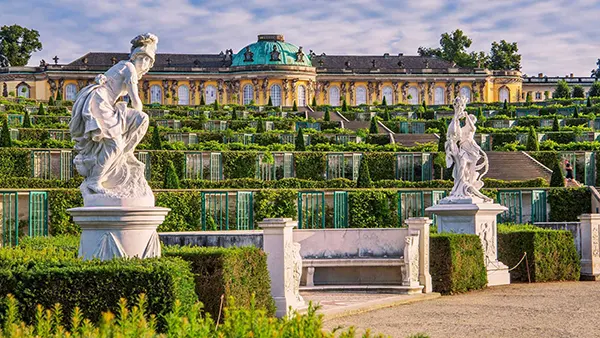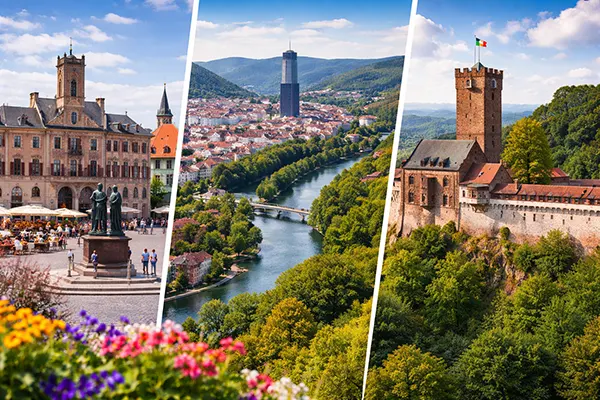
Regensburg (Rugen) — An Island with the Spirit of the 1970s
Regensburg, often affectionately referred to as Rugen Island, is a unique destination that transports visitors to the atmosphere of the 1970s. While much of Europe has rapidly modernised, this island has preserved its retro charm, combining cultural authenticity with scenic landscapes. For travellers in 2025, it offers not just leisure but also an immersive journey through time, reflecting an era of freedom, colour, and music that continues to inspire generations.
The cultural heritage of Rugen Island
The 1970s left a visible mark on the cultural landscape of Rugen. Walking through its towns, you can still encounter architectural elements, design patterns, and artistic touches that recall that decade. Locals have preserved cafés, cinemas, and even signage that stand as living reminders of a period when style and individuality blossomed. These details give the island a character distinct from more commercial tourist spots.
Music also plays a central role in maintaining the retro feel. Many venues feature live performances of rock, funk, and disco classics, creating a sense that time has slowed down. Summer festivals attract enthusiasts of vinyl records and vintage fashion, making the island not only a place to relax but also a stage for cultural expression. This spirit of creativity makes it appealing to both locals and visitors who value authenticity.
The island’s museums provide context for this retro environment. Exhibitions on life during the Cold War, East German culture, and European counterculture of the 1970s are all represented. By engaging with these, visitors gain more than just a visual experience — they receive insight into how social movements and artistic trends shaped the community.
Architectural and artistic landmarks
Among the most distinctive features of Rugen are the buildings designed or renovated in the 1970s. Hotels with geometric facades, public squares adorned with mosaics, and theatres with bold lines and colours still dominate certain parts of the island. These landmarks, though modest compared to grand European capitals, provide a vivid picture of design philosophy from that era.
Street art also reflects the 1970s aesthetic. Murals with psychedelic patterns, abstract motifs, and vibrant colours appear throughout the towns. This artistic continuity bridges past and present, ensuring the island never loses its creative identity. The murals often tell stories about social struggles, peace movements, and cultural exchange of the time.
These landmarks attract both historians and casual travellers. For experts, they represent a valuable case study in regional cultural preservation, while for holidaymakers, they provide an eye-catching background for exploration and photography.
Nature and leisure in retro style
Rugen Island is also famous for its natural beauty, which complements the retro ambience. Sandy beaches, chalk cliffs, and dense forests create an ideal setting for relaxation. Unlike many modernised resorts, the island retains an old-fashioned atmosphere, with seaside promenades that feel unchanged since the 1970s. Wooden benches, classic beach cabins, and bicycle routes make leisure here both nostalgic and comfortable.
Wellness tourism has grown steadily in recent years, but on Rugen, spas and thermal baths often maintain interiors that echo their historical past. Visitors can enjoy treatments surrounded by vintage decor, adding to the island’s authenticity. This combination of health and heritage enhances the sense of timelessness.
Outdoor enthusiasts also appreciate the island’s trails. Hiking routes pass through nature reserves that remain largely untouched, while cycling paths lead to fishing villages that still operate in traditional ways. This slower pace, supported by community values, mirrors the more relaxed lifestyle of the 1970s.
Festivals and seasonal events
One of the most striking aspects of Rugen’s cultural calendar is its dedication to retro-themed festivals. Every summer, music events celebrate genres that defined the 1970s, such as progressive rock, jazz fusion, and disco. These gatherings attract international visitors, yet the organisation remains community-based, reinforcing a sense of belonging.
Markets are another seasonal highlight. Vintage clothing stalls, craft workshops, and collectors’ stands selling vinyl and cassette tapes bring together those with a passion for the past. They allow travellers to interact with locals, purchase handmade souvenirs, and experience the communal atmosphere of earlier decades.
These events are not only entertaining but also educational. For younger visitors, they provide a glimpse into cultural life before digital technology, while for older generations, they evoke cherished memories. In both cases, they strengthen the island’s reputation as a living museum of the 1970s.

Travel and hospitality today
Despite its nostalgic focus, Rugen has adapted to modern standards of travel. Accommodation options range from retro-themed hotels to guesthouses that blend comfort with vintage design. Many establishments incorporate classic furniture, rotary telephones, and retro posters, offering a distinctive stay that feels far removed from generic tourism.
Culinary traditions also reflect continuity with the past. Restaurants serve dishes inspired by East German and 1970s European cuisine, often using locally sourced ingredients. Guests may encounter menus featuring hearty stews, smoked fish, and desserts popular during that decade, all prepared with contemporary standards of quality and safety.
Transport connections make visiting the island straightforward. Rail links to major German cities and ferry services ensure accessibility, while local buses retain a charmingly traditional feel. The blend of accessibility and authenticity ensures Rugen remains relevant in 2025, balancing convenience with heritage.
Modern relevance and preservation
The island’s ongoing appeal lies in its careful balance between nostalgia and progress. Local authorities have recognised the importance of preserving cultural identity while supporting sustainable development. Investments in renewable energy and eco-tourism coexist with protection of heritage sites, ensuring the past and present enrich each other.
For communities, preserving the 1970s atmosphere is more than just a tourist strategy. It represents continuity of memory, culture, and identity. By protecting vintage architecture and traditions, residents create a space where history remains part of daily life, not just museum exhibits.
For travellers, this means every visit offers a genuine cultural experience. Rather than being a manufactured attraction, Rugen Island provides an environment where history naturally coexists with contemporary needs, making it one of the most distinctive destinations in Northern Europe.



